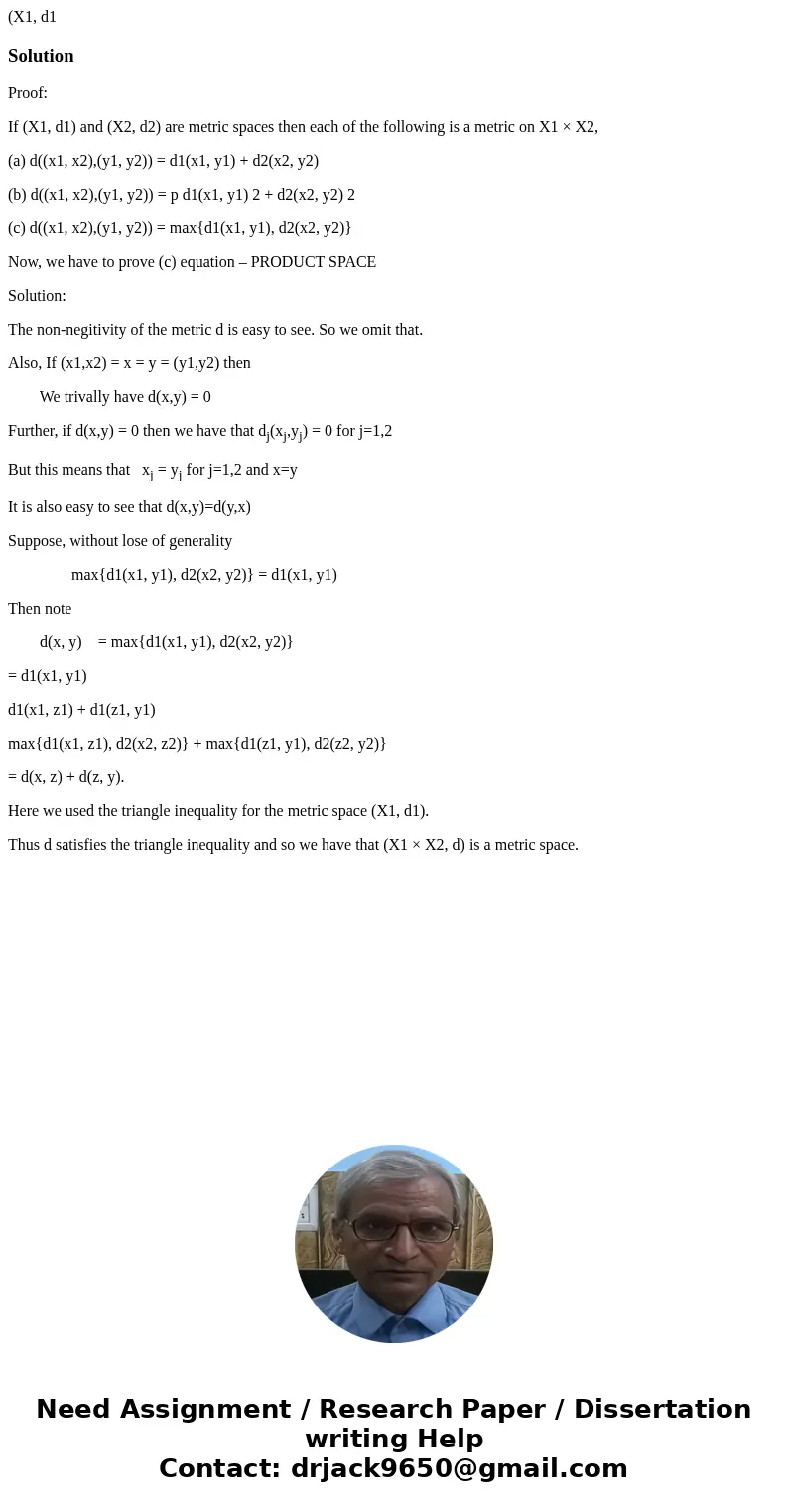X1 d1 SolutionProof If X1 d1 and X2 d2 are metric spaces the
Solution
Proof:
If (X1, d1) and (X2, d2) are metric spaces then each of the following is a metric on X1 × X2,
(a) d((x1, x2),(y1, y2)) = d1(x1, y1) + d2(x2, y2)
(b) d((x1, x2),(y1, y2)) = p d1(x1, y1) 2 + d2(x2, y2) 2
(c) d((x1, x2),(y1, y2)) = max{d1(x1, y1), d2(x2, y2)}
Now, we have to prove (c) equation – PRODUCT SPACE
Solution:
The non-negitivity of the metric d is easy to see. So we omit that.
Also, If (x1,x2) = x = y = (y1,y2) then
We trivally have d(x,y) = 0
Further, if d(x,y) = 0 then we have that dj(xj,yj) = 0 for j=1,2
But this means that xj = yj for j=1,2 and x=y
It is also easy to see that d(x,y)=d(y,x)
Suppose, without lose of generality
max{d1(x1, y1), d2(x2, y2)} = d1(x1, y1)
Then note
d(x, y) = max{d1(x1, y1), d2(x2, y2)}
= d1(x1, y1)
d1(x1, z1) + d1(z1, y1)
max{d1(x1, z1), d2(x2, z2)} + max{d1(z1, y1), d2(z2, y2)}
= d(x, z) + d(z, y).
Here we used the triangle inequality for the metric space (X1, d1).
Thus d satisfies the triangle inequality and so we have that (X1 × X2, d) is a metric space.

 Homework Sourse
Homework Sourse